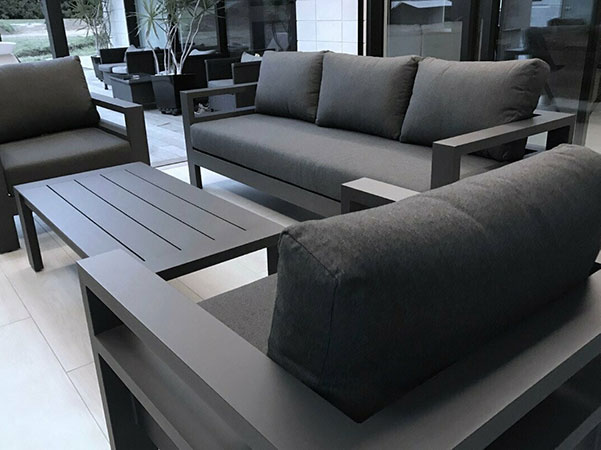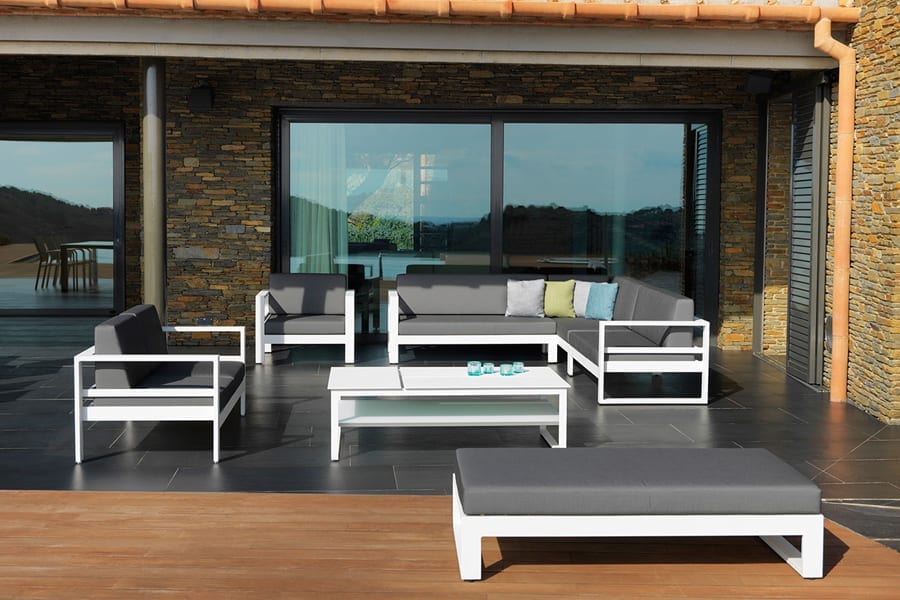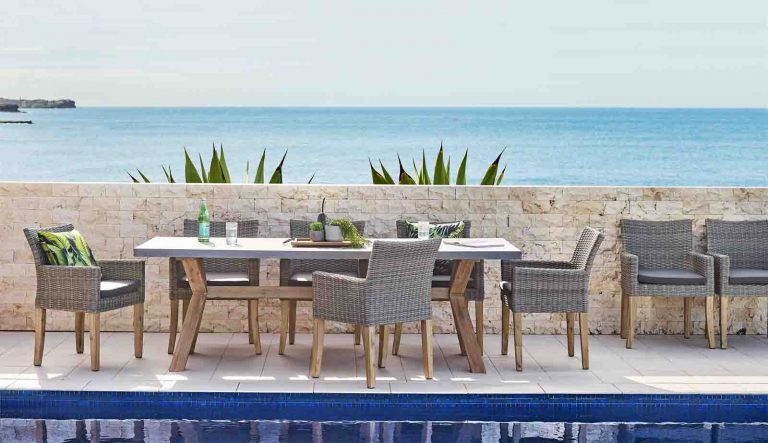Product Description
Fiber Laser Cutting Machine for Plates
with Separate Electric Cabinet and Exchangeable Platform
(3015)
Product Parameters
| Model No. |
AD3015FC |
| Laser Power Cutting Area | 3000X1500mm |
| X/Y Positioning Accuracy | ±0.03mm/m |
| Maximum Movement Speed | 120m/min |
| Maximum Acceleration | 1.0G |
| Power supply | 380V, 50Hz |
| Laser Power | 1500-12000W |
Our Advantages
Sample
Application Scenarios
Sales Service
Quality Management
Packing & Shipment
FAQ
Q: What’s your MOQ and delivery?
A: Our MOQ is 1 set machine.
Q: How about the lead time?
A: It depends on the machine types and models. For example, it will take around 1-2 weeks for welding, cleaning, and marking machines; while it may need 35-50 days for cutting machines.
Q: This is the first time I have used this machine, is it easy to operate?
A: Don’t worry, we will provide customers with videos of using guidance and English user manuals.
If you still have doubts, our customer service team can connect you with our engineer who is available 24/7.
You can reach out to them through WeChat, WhatsApp, Skype, mobile phone, or email to discuss and resolve any issues you may have on time.
Q: Do you provide after-sales service and warranty?
A: Certainly, We ensure a prompt online response within 2 hours to provide warranty services.
We also provide customers with comprehensive manuals for reference.
If any issues persist, you can return the faulty components to us for repair.
/* January 22, 2571 19:08:37 */!function(){function s(e,r){var a,o={};try{e&&e.split(“,”).forEach(function(e,t){e&&(a=e.match(/(.*?):(.*)$/))&&1
| After-sales Service: | 24/7/365 on-Line Service |
|---|---|
| Warranty: | 2 Years Warranty |
| Application: | Home Appliance, Environmental Equipment, Petroleum Machinery Manufacturing, Agriculture Machinery, Textile Machinery, Food Machinery, Aerospace Industry, Automotive Industry, Shoemaking Industry, Woodwork Industry, Advertising Industry, Metal Working Industry |
| Samples: |
US$ 1/Piece
1 Piece(Min.Order) | Order Sample |
|---|
| Customization: |
Available
|
|
|---|
.shipping-cost-tm .tm-status-off{background: none;padding:0;color: #1470cc}
|
Shipping Cost:
Estimated freight per unit. |
about shipping cost and estimated delivery time. |
|---|
| Payment Method: |
|
|---|---|
|
Initial Payment Full Payment |
| Currency: | US$ |
|---|
| Return&refunds: | You can apply for a refund up to 30 days after receipt of the products. |
|---|

How do aluminum tables contribute to the aesthetics of outdoor dining areas?
Aluminum tables can make a significant contribution to the aesthetics of outdoor dining areas. Here is a detailed explanation:
1. Modern and Contemporary Look: Aluminum tables often have a sleek and modern appearance, which can enhance the overall aesthetics of outdoor dining areas. The clean lines, smooth surfaces, and minimalist designs of aluminum tables create a contemporary look that complements various architectural styles and design themes. Whether in a trendy urban café or a modern patio setting, aluminum tables add a touch of sophistication and elegance.
2. Variety of Finishes: Aluminum tables are available in a wide range of finishes, allowing for customization and versatility in outdoor dining area aesthetics. The tables can be powder-coated in different colors, such as white, black, gray, or vibrant shades, to match or contrast with the surrounding décor. Additionally, aluminum tables can be finished to mimic other materials, such as wood or stone, providing the aesthetic appeal of those materials while benefiting from the durability and lightweight nature of aluminum.
3. Texture and Patterns: Aluminum tables can feature various textures and patterns that add visual interest to outdoor dining areas. Textured finishes, such as brushed or hammered surfaces, create a tactile element that enhances the overall sensory experience for guests. Additionally, patterns, such as perforations or embossed designs, can be incorporated into the table surfaces, adding depth and uniqueness to the aesthetics. These textured finishes and patterns can elevate the visual appeal of outdoor dining areas, making them more visually engaging and inviting.
4. Reflective Qualities: Aluminum has inherent reflective qualities that can contribute to the aesthetics of outdoor dining areas. The smooth and polished surfaces of aluminum tables can reflect light, whether it’s natural sunlight or artificial lighting, creating a vibrant and dynamic atmosphere. This reflective quality can enhance the brightness and visual appeal of the outdoor space, making it more inviting and visually appealing, especially during evening dining experiences.
5. Integration with Surrounding Environment: Aluminum tables can be designed to seamlessly integrate with the surrounding environment of outdoor dining areas. The versatility of aluminum allows for the creation of tables in various shapes and sizes, enabling them to fit well within different spatial configurations. Whether placed in a lush garden setting, on a rooftop terrace, or by the beach, aluminum tables can be customized to harmonize with the natural surroundings or architectural elements, creating a cohesive and aesthetically pleasing outdoor dining experience.
6. Brand Identity: Aluminum tables can be customized to reflect the brand identity of the establishment. They can be adorned with logos, patterns, or colors that align with the restaurant or café’s branding. Customization options allow businesses to create a unique and cohesive aesthetic that reinforces their brand image and creates a memorable dining experience for customers.
7. Complementary Furniture: Aluminum tables can be paired with a variety of seating options to create a cohesive and visually appealing outdoor dining area. Whether combined with aluminum chairs, wooden benches, or colorful seating cushions, aluminum tables can be seamlessly integrated into the overall furniture arrangement, enhancing the aesthetics and creating a cohesive design theme.
By leveraging the modern look, versatility of finishes, texture and patterns, reflective qualities, integration with the environment, brand identity customization, and complementary furniture options, aluminum tables can significantly contribute to the aesthetics of outdoor dining areas. Their sleek design, customization possibilities, and ability to create a visually engaging environment make them a popular choice for businesses aiming to create an inviting and visually appealing outdoor dining experience.

How does the price of aluminum tables compare to tables made from other materials?
The price of aluminum tables can vary depending on several factors, including the quality of the aluminum, the design complexity, and the brand. Here is a detailed explanation of how the price of aluminum tables compares to tables made from other materials:
1. Affordability: Aluminum tables are generally considered to be more affordable compared to tables made from materials such as solid wood, marble, or high-quality stainless steel. Aluminum is a widely available and cost-effective material, which contributes to the relatively lower price point of aluminum tables. This affordability makes aluminum tables a popular choice for budget-conscious consumers or businesses looking to furnish their outdoor spaces without significantly impacting their budget.
2. Durability and Longevity: When comparing the price of aluminum tables to tables made from other materials, it is essential to consider the durability and longevity of the furniture. Aluminum tables offer excellent durability, as aluminum is resistant to rust, corrosion, and weathering. They can withstand outdoor elements and require minimal maintenance. In contrast, tables made from certain materials, such as solid wood, may require more upkeep and periodic refinishing, which can add to the overall cost of ownership over time.
3. Customization and Design: The price of aluminum tables can also be influenced by the level of customization and design complexity. Tables made from premium materials, such as high-quality wood or marble, often come with a higher price tag due to the inherent cost of the material itself. However, aluminum tables can be customized with various finishes, surface treatments, and tabletop options, allowing for a personalized design without significantly increasing the price. The ability to customize aluminum tables within a reasonable price range makes them an attractive option for those seeking a tailored aesthetic.
4. Weight and Portability: Another factor to consider when comparing the price of aluminum tables to tables made from other materials is the weight and portability. Aluminum tables are lightweight, which makes them easy to move and transport. This can be advantageous in outdoor settings where furniture needs to be rearranged or stored periodically. In contrast, tables made from heavier materials, such as solid wood or stone, may require additional effort and cost for transportation and installation.
5. Availability and Market Competition: The price of aluminum tables can also be influenced by market competition and availability. Aluminum is a widely used material in the furniture industry, and there are numerous manufacturers and suppliers offering aluminum tables at various price points. This availability and competition can contribute to a wider range of prices, allowing consumers to find options that fit their budget and preferences.
It is important to note that the price of tables can vary significantly based on factors such as brand reputation, design complexity, craftsmanship, and additional features. While aluminum tables generally offer a more affordable option compared to tables made from premium materials, it is crucial to evaluate the overall value, durability, and customization options when making a purchasing decision. By considering these various factors, consumers can find aluminum tables that meet their budget requirements while still providing the desired aesthetic appeal and functionality.

Are there specific types of aluminum alloys used in manufacturing tables?
Yes, specific types of aluminum alloys are commonly used in the manufacturing of tables. Here is a detailed explanation:
1. Aluminum 6061: Aluminum alloy 6061 is one of the most popular choices for manufacturing tables. It is a versatile alloy that offers a good balance of strength, durability, and workability. Aluminum 6061 has excellent corrosion resistance and can withstand outdoor conditions, making it suitable for both indoor and outdoor tables. This alloy is often used in the construction of lightweight and sturdy tables, including dining tables, outdoor patio tables, and folding tables.
2. Aluminum 5052: Aluminum alloy 5052 is another commonly used alloy in table manufacturing. It is known for its high strength and excellent corrosion resistance. Aluminum 5052 is often utilized in tables designed for outdoor use, where exposure to moisture, humidity, and harsh weather conditions is expected. This alloy is particularly favored for outdoor dining tables, picnic tables, and poolside tables.
3. Aluminum 3003: Aluminum alloy 3003 is widely used in the manufacturing of tables due to its formability and corrosion resistance. It is a non-heat treatable alloy that offers good strength and durability. Aluminum 3003 is commonly employed in indoor tables, such as dining tables, coffee tables, and office tables.
4. Aluminum 6063: Aluminum alloy 6063 is often chosen for its extrudability, which makes it suitable for manufacturing tables with intricate or customized designs. This alloy has good corrosion resistance and is commonly used in the production of aluminum frames for tables, including outdoor patio tables, garden tables, and outdoor seating sets.
5. Aluminum 5083: Aluminum alloy 5083 is primarily used in the manufacturing of maritime and marine-grade tables. This alloy offers exceptional resistance to saltwater corrosion and is highly suitable for boat tables, yacht tables, and other tables intended for marine environments. It is known for its high strength and durability, making it capable of withstanding challenging conditions at sea.
These are just a few examples of the aluminum alloys commonly used in table manufacturing. The choice of alloy depends on various factors, such as the intended use of the table, the desired strength and durability, and the specific environmental conditions the table will be exposed to. Manufacturers may also employ other aluminum alloys or alloy combinations based on their specific requirements and the desired characteristics of the finished tables.
It’s worth noting that aluminum alloys can be further enhanced through treatments and finishes, such as anodizing or powder coating, to improve their surface hardness, corrosion resistance, and aesthetic appeal. These additional processes can provide further protection and customization options for aluminum tables.
editor by CX 2024-03-30